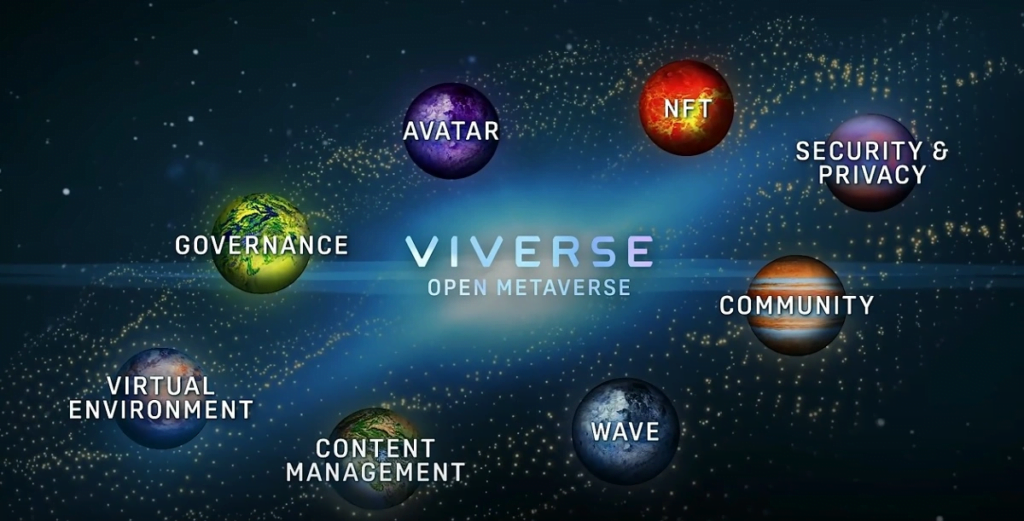Tech giant HTC Corp. is working on popularizing virtual reality as part of its metaverse strategy. The goal is to advance the technology in both the consumer and enterprise markets. According to Charles Huang, HTC’s corporate vice president, there is a growing demand for VR devices in many segments. So far, remote conferencing, education, training, healthcare, design, and exhibitions have seen the most demand.
The COVID-19 pandemic accelerated most of the VR demand, and HTC is betting on the business-to-business segment to drive more growth in the VR market. That said, the company is cooperating with other heavyweights in the sector to develop new applications.
According to Huang, the metaverse isn’t a slogan or a distant future. Therefore, HTC is working around the clock to strengthen technological exchanges and information sharing in the metaverse. The goal is to build an interconnected, mutually beneficial, and compatible metaverse ecosystem.

So far, HTC has launched Viverse, its own metaverse platform that offers seamless experiences. Most of these experiences can be accessed on any device. And are powered by VR, AR, AI, blockchain, and high-speed connectivity.
What Should The Perfect Metaverse Platform Look Like?
Last year, the VR and AR market was estimated to be worth $14.67 billion. It’s expected to grow at a 38.8% CAGR in the next five years, reaching over $74 billion. Additionally, the Chinese AR and VR market was estimated to be worth about $2.13 billion in 2021. And its growth is expected to reach $13.08 billion by 2026. This will make HTC’s home market the second largest in the world.
Earlier versions of the metaverse already exist, which offers users a glimpse of what to expect with the technology. However, these are very raw versions as most companies invested in the space try to figure out what the perfect platform will look like.
Technology experts expect the successful version of the metaverse to feature a decentralized, open platform. One that can be accessed using VR headsets and will be powered by blockchain technology. According to Pedro Palandrani, technology analyst at Global X ETFs, “a truly immersive metaverse experience, for instance, engages all the senses—sight, sound, touch, smell, and taste. Today, VR mostly involves sound and images.”
Author

Basil is an avid fan of blockchain technology and all its innovations, and he is passionate about sharing this narrative with his audience. He has spent over five years in the crypto space, specializing in research and creating fintech content for various media outlets around the globe. His work has been published on top websites such as usethebitcoin.com, European Blockchain Convention, NFTNewsToday, coinjournal.net, coinlist.me, and many others. When not thinking about disruptive technologies, Basil is busy exploring the outdoors.




